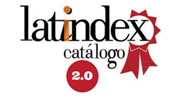Orientación vocacional y profesional en el proyecto de vida de estudiantes con riesgo escolar
DOI:
https://doi.org/10.61395/victec.v5i9.179Keywords:
Orientación, vocación, profesional, proyecto de vida, riesgo escolarAbstract
The study is based on the theories of Donald Super, Edward Deci and Richard Ryan, which provide a comprehensive framework to understand how vocational guidance affects the life project of students. The objective was to determine the impact of vocational guidance on the life project of students at school risk. The non-experimental design, correlational level with a quantitative approach was used as a methodology. The sample was 90 tenth year students of basic general education. Two surveys were applied that presented validity and reliability. Among the most relevant results, it was found that 70% of the students are at the low level of vocational and professional orientation and 72.22% are at the low level of development of their life project. It was also shown that 66. 67% of the students show low vocational and professional orientation, as well as their life project. It was concluded that there is a significant positive correlation between the vocational and professional orientation of the students and the development of their life projects (Spearman's Rho of 0.912 and significance of 0.000).
Downloads
References
Bruno, D., & Malvido, A. (2023). Proyecto de vida y futuro. Representaciones estudiantiles en la Argentina pospandemia. Revista Argentina de Investigación Educativa, III(6), 13-27. Obtenido de https://portalrevistas.unipe.edu.ar/index.php/raie/article/download/251/143/ 906
Bulgarelli, R., Rivera, J., & Fallas, M. (2017). El proceso vocacional del estudiantado universitario en condición de logro y rezago académico: Un análisis desde el enfoque evolutivo de Donald Super. Educare, 21(1), 1-24. doi:https://doi.org/10.15359/ree.21-1.1
Deci, F., & Ryan, R. (1985). Intrinsic motivation and self-determination in human behavior. New York: Plenum Press.
Díaz, A., & Silva, C. (2021). Normas de convivencia escolar. Estudios Pedagógicos, 409-
Obtenido de https://www.scielo.cl/pdf/estped/v47n1/0718-0705-estped- 47-01-409.pdf
Díaz, I., Narváez, I., & Amaya, T. (2020). El proyecto de vida como competencia básica en la formación integral de estudiantes de educación media. Rev.investig.desarro.innov, 11(1), 113-126.
doi:10.19053/20278306.v11.n1.2020.11687
Erazo, X., & Rosero, E. (2021). Orientación vocacional y su influencia en la deserción universitaria. Horizontes. Revista de Investigación en Ciencias de laEducación, 5(18), 591-606. doi:https://doi.org/10.33996/revistahorizontes.v5i18.198
Mera, C., & Zambrano, L. (2021). Proyecto de vida y su relación con la permanencia educativa en estudiantes de bachillerato. Polo del Conocimiento, 6(9), 1935- 1949. Obtenido de https://dialnet.unirioja.es/descarga/articulo/8094523.pdf
MINEDUC. (2015). Orientación vocacional y profesional. Obtenido de https://educacion.gob.ec/wp-content/uploads/downloads/2016/06/A.- Manual-de-OVP.pdf
Osores, S. (2021). Elección vocacional en adolescentes. Temática Psicológica, 17(1), 39-
doi:https://doi.org/10.33539/tematpsicol.2021.n17.2626
Resabala, L., Rodríguez, A., Mendoza, S., & Guerrero, H. (2023). La orientación vocacional y su influencia en la elección del perfil profesional del bachiller ecuatoriano. Revista Científica Arbitrada Multidisciplinaria PENTACIENCIAS, 5(3), 775-785. doi: https://doi.org/10.59169/pentaciencias.v5i3.802
Stover, J., Bruno, F., Uriel, F., & Fernández, M. (2017). Teoría de la Autodeterminación: una revisión teórica. Perspectivas en Psicología: Revista de Psicología y Ciencias Afines, 14(2), 105-115. Obtenido de https://www.redalyc.org/pdf/4835/483555396010.pdf
Super, D. (1962). Psicología de la Vida Profesional. Madrid: Ediciones Rialf.
UNESCO. (2020). ILO-UNESCO-WBG Joint Survey on Technical and Vocational Education and Training (TVET) and Skills Development during the time of COVID-19. ILO- UNESCO, 1-44. Obtenido de https://www.ilo.org/wcmsp5/groups/public/--- ed_emp/---emp_ent/documents/genericdocument/wcms_742817.pdf
Universia. (2020). ¿Qué tienen en común los mejores sistemas educativos del mundo? Obtenido de https://www.universia.net/es/actualidad/orientacion- academica/que-tienen-en-comun-los-mejores-sistemas-educativos-del- mundo.html
Yalandá, L., & Trujillo, A. (2021). La importancia de la orientación vocacional en la formación escolar. Fedumar, Pedagogía y Educación, 8(1), 98-114.








